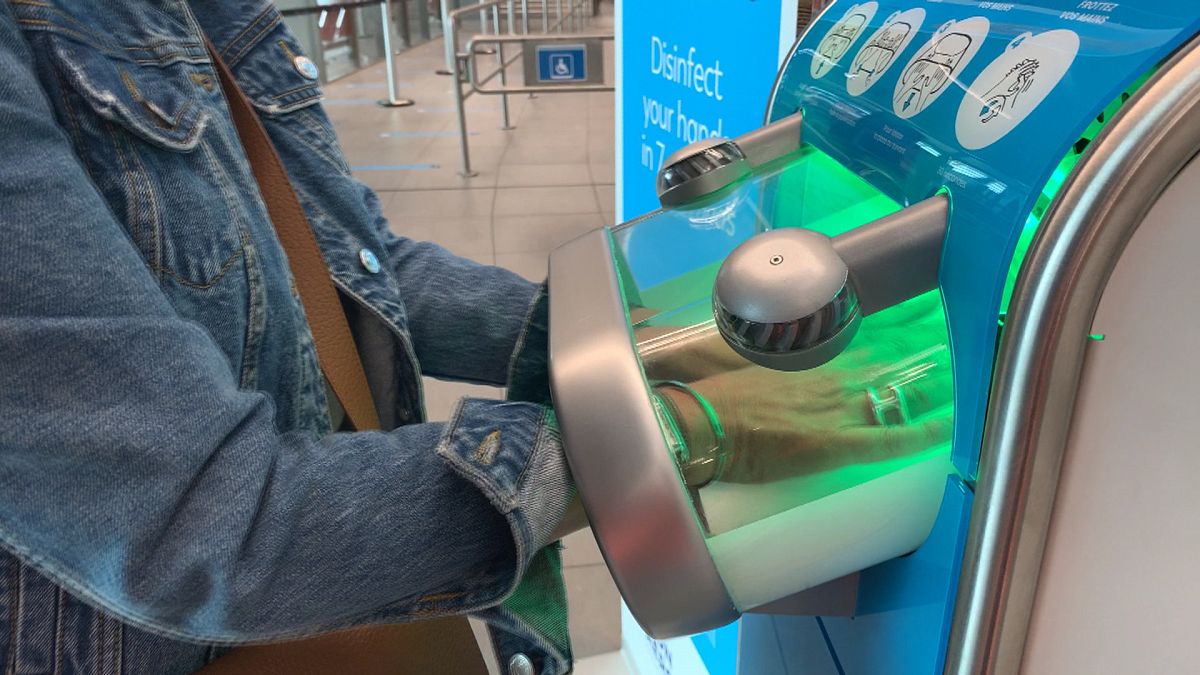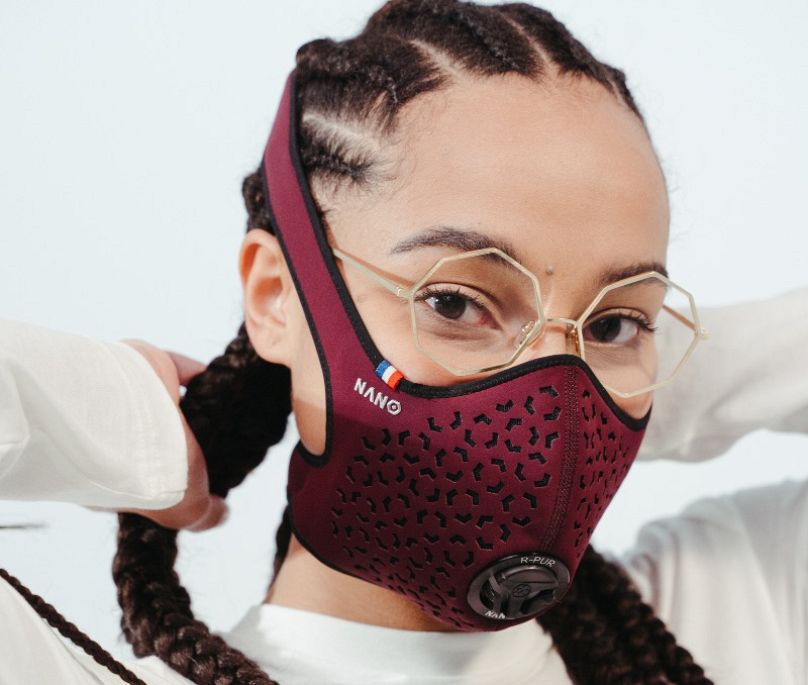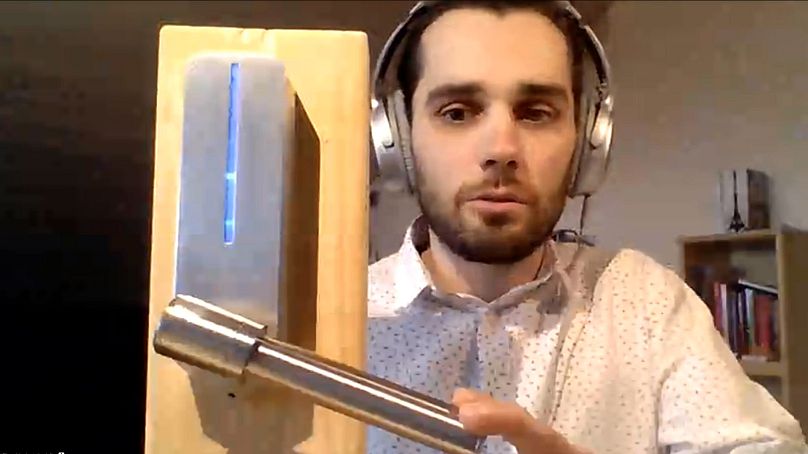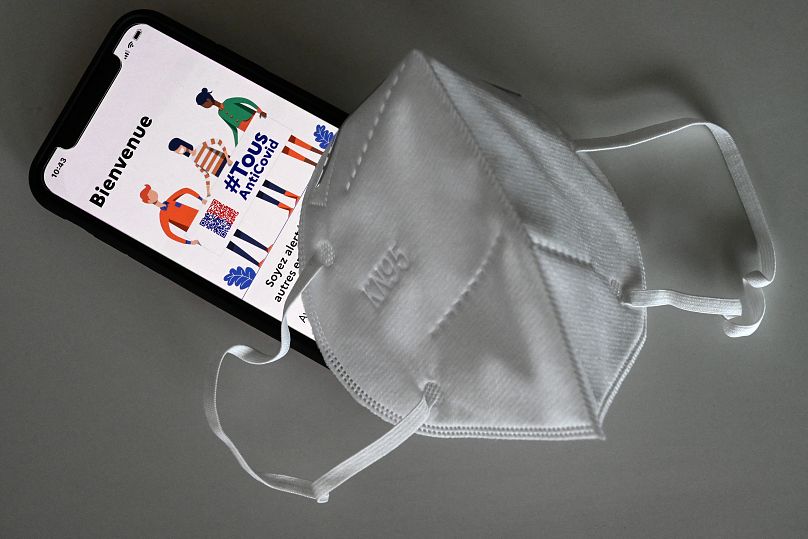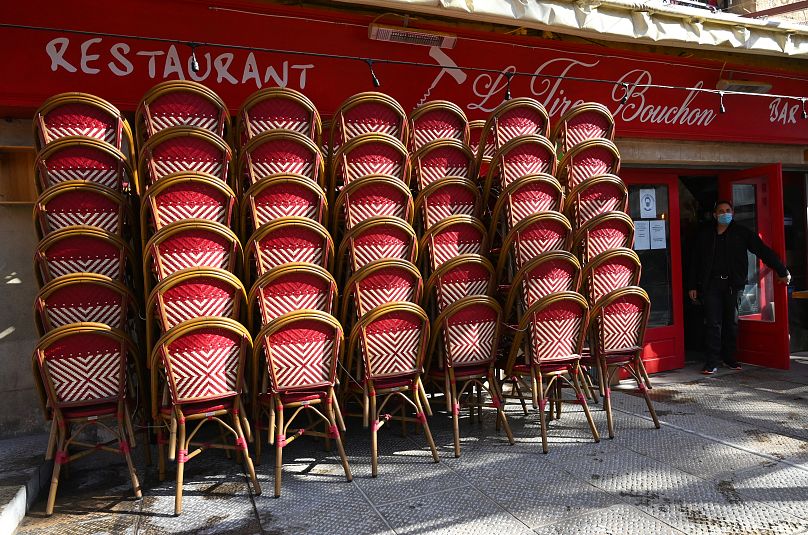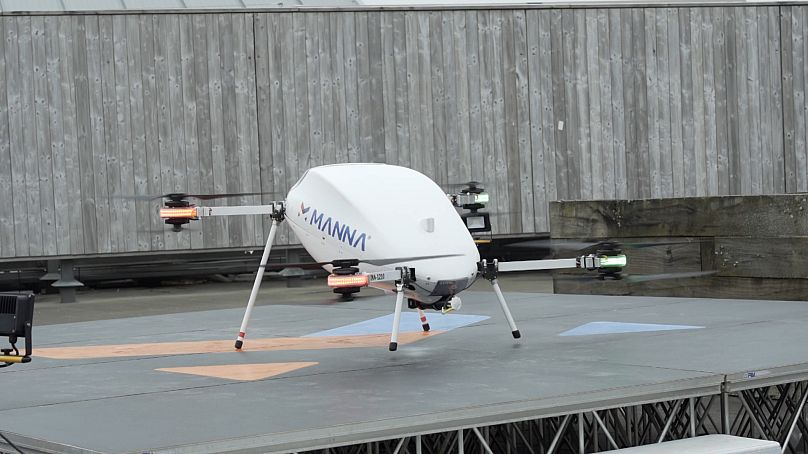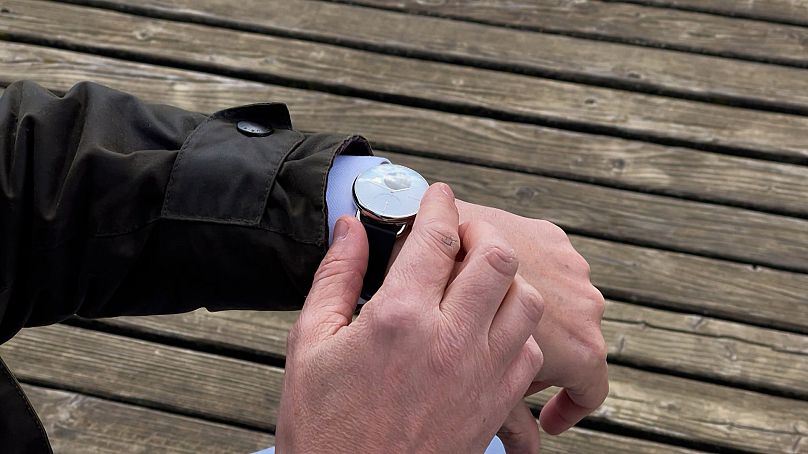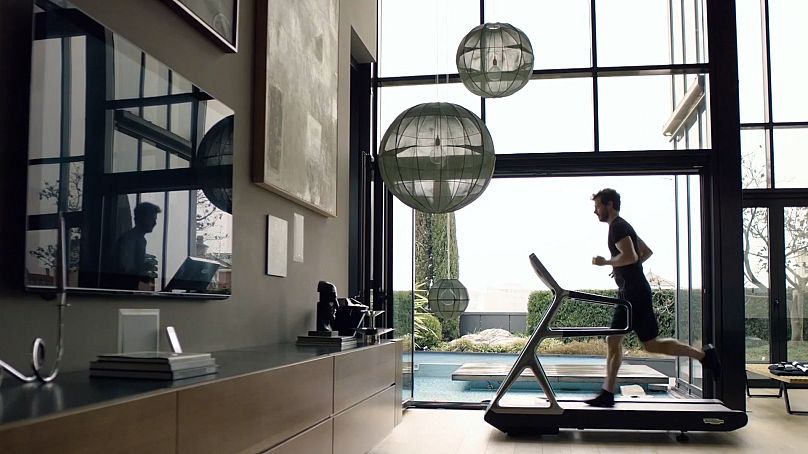Devices such as self-cleaning door handles and masks that also filter out pollution have shown how human innovation has triumphed in a year of adversity.
The coronavirus pandemic has inspired a wave of ingenuity with new inventions changing the way we groom ourselves and look after our health.
As well as vaccines being developed at a record pace to fight against Covid-19, other devices such as self-cleaning door handles and masks that also filter out pollution have shown how human innovation has triumphed in a year of adversity.
Euronews takes a look at the latest Covid inspired technologies.
1) The ventilator that also kills Covid
The Covid Emergency Ventilator not only helps patients to breathe but also cleans the room of viral particles so that only purified air is breathed in.
It was designed in just three days by Dr Rhys Thomas, from Glangwili Hospital in Wales.
The ventilator is also cheap and only takes a day to assemble, meaning it is ideal for low and middle-income countries.
2) The FFP3 face mask that blocks almost everything
Wearing a face mask has become the new normal and one of the most important things you can do to stop the spread of coronavirus.
While many wear disposable three-layer masks, others have come onto the market that offers even more protection.
French company R-Pur has been making anti-pollution masks since 2015 and its FFP3-rated masks have five layers that filter out gasses, pollen, toxic particular matter linked to air pollution and of course bacteria and viruses.
Testing out the mask, Euronews science correspondent Jeremy Wilks says "When you wear the mask it's like you're breathing the purified air of a scientific clean room. Normal odours, like traffic fumes, are completely blocked by this mask".
R-Pur is aiming for the upper reaches of the face mask, with prices of around 130 euros per unit. It has also been collaborating with fashion designers to create the ultimate in pandemic face-mask chic.
3) The self-cleaning door handle
Epidemiologists estimate that coronavirus can live on steel for up to three days, making door handles an easy object to spread infection.
But multiple solutions have been developed.
Swiss start-up Clean Motion has built a handle the disinfects 99.9% of viruses and bacteria immediately by spreading a thin film of disinfectant on the surface.
Other inventions include door-opening devices such as the Hygienehook, created by London-based designer Steve Brooks.
The hook fits into your pocket and is easy to clean so you can use it without having to touch any door handle.
4) The phone cleaning device
With our smartphones in constant use held in our hands and pressed against our faces, their cleanliness is also key to stopping the spread of coronavirus.
The company PhoneSoap uses UV-C light to kill 99.99 percent of germs and has two ports for charging your device at the same time. You simply put it in the box and let it work its magic.
5) Safe eating bubbles
French designer Christophe Gernigon has designed a range of protective plastic bubbles that can be lowered around seats and tables in cafes and restaurants to help reduce the spread of the virus.
Some are suspended from the ceiling and others attach directly to the table. They are also relatively low cost at between €114 and €234, meaning some restaurants may consider them a reasonable price, that's once they reopen, of course.
6) The Covid monitoring app
The COVID Symptom Study app was launched by King’s College London and now has four million subscribers, all of whom track the specific nature of their coronavirus symptoms to help scientists understand how the virus works.
The researchers behind it say the method of using a smartphone could be used in the future to understand other illnesses.
7) The drone that safely delivers
Another innovation that has quite literally taken off is drone delivery service Manna. The Irish company delivers anything from medicine and food to your garden.
It also passes products through ultra-violet light to kill off germs.
The drone can deliver packages a little larger than the average shoe box, and it flies at an altitude of around 50 to 80 metres at 80 kilometres per hour. The service can reach homes within over a 100 square kilometres around the pharmacy, and is aimed at suburban areas around the world.
The drone will literally drop the items into you front or back garden, as company founder Bobby Healy explains. "It lowers to 15 metres, we open the cargo bay doors and we lower the bag down to the ground on the biodegradable linen thread. So there's no no people involved, so nobody arriving at your house, they're clean," he explains. He adds with a smile, that they also "don't ask for tips".
8) The smartest of smartwatches
The pandemic has made us much more aware of our own health. While smartwatches have been on the market for several years tracking our steps, heart rate and how we sleep, the Withings Scanwatch's design is much sleeker than the standard smartwatch.
Euronews' space, science and climate correspondent Jeremy Wilks tested it out for two weeks.
"I can monitor my heart rate, number of steps taken, kilometres walked, blood-oxygen level, monitor sleep apnea and even carry out an electrocardiogram whenever I like," he said.
"The fact that this particular watch has a classic look rather than looking too geeky sets it apart from the competition. At 280 euros, it's similarly priced to other smartwatches on the market from Apple, Samsung and Fitbit which have the same kinds of health features."
9) Working out from home safely
Subsequent lockdowns have limited our movement and while some people may have become best friends with their sofas, others are exercising from home since the shutdown of gyms.
This has led to an increase in sports-related injuries, said Nerio Alessandri, president and founder of Italian sports machines company Technogym. He revealed that one of the unexpected growth areas for their company has been in increased sales to physiotherapists, who need the machines to treat people who have injured themselves by improvising an exercise routine at home in front of the television.
Alessandri took the opportunity to remind everyone to get help from a professional, even remotely, if they are starting to exercise for the first time. "Physical exercise or training must be done with a support, with safe products that are easy to use, that have the right posture, the right biomechanics and allow you to do an efficient and effective exercise while having fun," he told Euronews.
